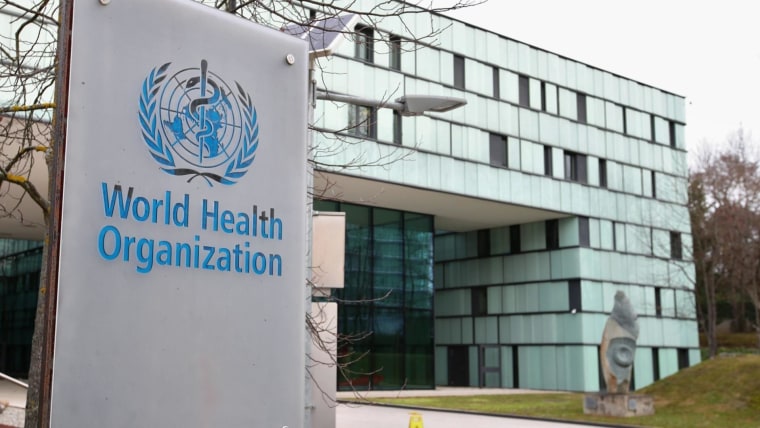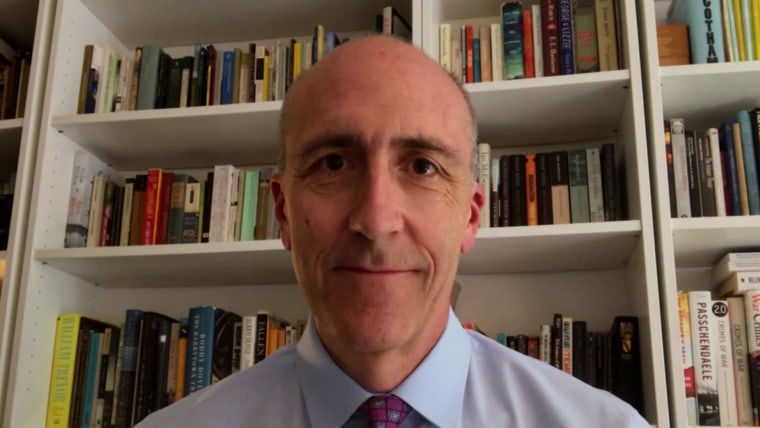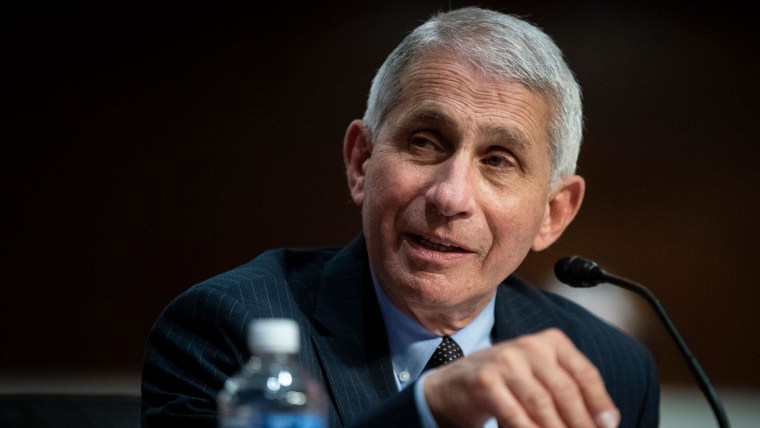WASHINGTON — President Donald Trump's decision to withdraw the U.S. from the World Health Organization will damage global efforts to combat the COVID-19 pandemic as well other deadly diseases such as polio, tuberculosis and HIV, public health experts say.
The WHO, which was created by the U.S. and other world powers in the wake of World War II, plays a unique role in collecting and disseminating vital information to foreign governments on infectious diseases, coordinating vaccine research and providing crucial medical advice and equipment to low-income countries, experts said.
At a moment when the world is facing the worst pandemic in a century, the WHO's role is irreplaceable, said Thomas Bollyky, director of the global health program at the Council on Foreign Relations.
"The U.S. withdrawal from the WHO makes Americans less safe and undermines the global fight against COVID-19," Bollyky said. "The performance of WHO has not been perfect in this pandemic, but the world is safer for the data and scientific and technical expertise that a fully-supported WHO provides."
Trump had vowed to pull the U.S. out of the WHO in late May and his administration formally notified the U.N. secretary general and Congress of the decision on Tuesday. The U.S. exit would become effective July 6, 2021.
A WHO spokesperson told NBC News they were aware of reports that the U.S. submitted the formal notification to withdraw, but declined to comment further.
The White House has accused the WHO of failing to confront Beijing over its initial response to the coronavirus outbreak and said the United States would no longer provide funding for the organization without major reforms. But public health experts and former U.S. officials said pulling out of the organization will diminish America's influence on global health and merely cede ground to Beijing, which already announced plans to increase its contributions to the U.N. body.
"The administration's move to formally withdraw from WHO amid the greatest public health crisis that Americans and the world have faced in a century is short-sighted, unnecessary, and unequivocally dangerous," said Elizabeth Cousens, CEO of the United Nations Foundation, which supports the work of U.N. agencies. "WHO is the only body capable of leading and coordinating the global response to COVID-19."
The Trump administration says its decision to leave the WHO will not affect the country's commitment to fighting the pandemic abroad and that the U.S. has allocated more than $10 billion for the global COVID-19 response. Officials have said the administration has already begun diverting money that had been destined for the WHO to other global health organizations.
The withdrawal also will not diminish the United States' leading role in supporting global health and humanitarian aid, the administration said. The United States "is committed to ensuring our generosity directly reaches people around the world," a State Department spokesperson said.
The United States has been the leading contributor to WHO's budget and President Trump's decision will create a funding shortfall. The annual U.S. contribution to the WHO last year came to $400 million, roughly 15 percent of the agency's budget. China's contribution was around $40 million.
The WHO will have to look for additional funding from private donors or foreign governments, an unwelcome distraction for an organization focused on countering the pandemic, Bollyky and other experts said.
Apart from the effect on fighting the COVID-19 pandemic, the U.S. exit from the WHO also puts at risk a polio vaccination program that has long been a priority for the U.S. across several administrations. Trump's decision comes just as doctors believe polio is on the verge of being eradicated from the planet.
"Without U.S. funding and political support, there is a good chance the world would see a resurgence of wild polio," said Lawrence Gostin, director of the O'Neill Institute for National and Global Health Law at Georgetown University.
"The U.S. is a key strategic partner in polio eradication. We are nearly at the point of eradication. We can't take our foot off the pedal now," Gostin told NBC News.
The focus of the WHO polio program is in Afghanistan, Nigeria and Pakistan, where clusters of cases continue to appear every year. The WHO is able to operate more effectively in Afghanistan and Pakistan than the United States on its own, as it is perceived as a trusted, neutral party, experts said.
Since the program was launched in 1988, the incidence of polio cases has been reduced by 99 percent, according to the WHO.
"The U.S. has put so much work into this effort. To withdraw now is foolhardy and dangerous," said Craig Spencer, assistant professor at the Columbia University Medical Center.
The U.S. departure could also threaten other WHO programs that seek to combat drug-resistant tuberculosis, HIV, malaria, and ensure vaccinations for children and safe childbirth in poorer countries, according to Gostin.
Since the WHO was founded more than 70 years ago, the United States has played a dominant role in shaping the organization's agenda and policies. America has more nationals working at the organization than any other country, including three of its citizens in top tier posts.
But the Trump administration and some of its Republican allies in Congress maintain that the WHO was overly deferential to China when the pandemic began, relaying information from Beijing without sufficient caveats. The Trump administration has asserted that the WHO helped conceal the extent of the outbreak in its early stages, but the organization has vehemently rejected the allegation.
"They didn't get it right. The WHO failed in its mission to provide the information to the world in a timely fashion about the risk that was emanating from China," Secretary of State Mike Pompeo said in May.
Defenders of the WHO say the U.N. body lacks the authority to compel China or any foreign government to share information or allow international medical teams to visit hospitals or labs. Instead, the organization has to rely on the cooperation of member states.
Some Republican lawmakers argued against Trump's decision, saying the United States should remain in the WHO to work for reform and correct whatever mistakes were made in the organization's response to the pandemic.
"Our allies also want answers and to get them we need to show global leadership and work with like-minded nations, not take our ball and go home. Republican Rep. Will Hurd of Texas wrote in an op-ed last month.
Sen. Lamar Alexander, R-Tenn., chairman of the Senate Health Committee, also criticized the move. "If the administration has specific recommendations for reforms of the WHO, it should submit those recommendations to Congress, and we can work together to make those happen," Alexander said.
Joe Biden, the presumptive Democratic presidential nominee, said Tuesday he would bring the U.S. back into the WHO on his first day in office if he is elected.
Democrats in Congress, and some former public health officials, have accused the Trump White House of focusing on the WHO and China as a way of steering attention away from what they say are the administration's failures in managing the pandemic.
"The disastrous state of the outbreak in the United States is not the result of following WHO guidance but rather is the result of ignoring the agency's increasingly urgent warnings from late January onward," said Jeremy Konyndyk, a senior policy fellow at the Center for Global Development who helped oversee the Obama administration's response to the Ebola outbreak in Africa.
"Had the US followed WHO's advice on early preparedness, aggressive testing, contact tracing, and other response measures, we would be in a far better place today than we are," he said.
"who" - Google News
July 08, 2020 at 07:58PM
https://ift.tt/3e7kktj
U.S. exit from WHO will jeopardize global fight against COVID-19, polio, other diseases, experts say - NBC News
"who" - Google News
https://ift.tt/36dvnyn
https://ift.tt/35spnC7
Bagikan Berita Ini

















0 Response to "U.S. exit from WHO will jeopardize global fight against COVID-19, polio, other diseases, experts say - NBC News"
Post a Comment